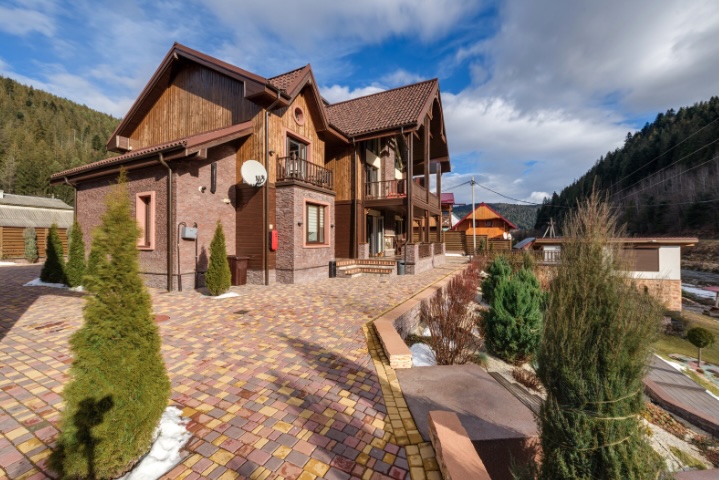Home Buying Tips for Retirement
Many people consider buying a home specifically for retirement. After all, your needs and desires for a house can be a lot different at 60 then they were at 30.
The kids are gone, you may not want to walk up and down the stairs forever, and you may want to live somewhere you have always dreamed of. What better time to make a change than when you retire?
While it can be exciting to consider such a significant change, it is essential to pay attention to what you are doing as you purchase your retirement home. You want to get this right.
Fortunately, with the help of an experienced Real Estate agent and a little homework, you can move forward with confidence.
One of the first things people often ask themselves is when should I downsize my home. The answer can vary from person to person. Take a look at the previous reference for some guidance in making sound decisions.
Keep reading for some of my best tips for finding a retirement home that will work best for your circumstances.
1. PICK A LOCATION THAT WILL WORK WELL WHEN YOU ARE OLDER.
As you age, it is going to be more challenging to get around. Eventually, driving will not be an option. So you want to pick a location that will give you easy access to the things you care about.
Rural locations may be fine if you are close to friends and family, but city locations are often easier to get around in. Also, consider what activities you enjoy the most and try to make them easy to access.
One of the things I’m often mentioning to people is thinking about how to pick a neighborhood you will love. Some of the things mentioned may or may not be necessary to you. What you have to figure out is what are must-haves.
Do you want to be close to the beach, a golf course or some other hobby you enjoy? Make sure you consider the drive time when picking a place for your retirement home.
2. SINGLE-STORY HOMES ARE IDEAL.
No matter how health conscious you are, there will come the point where going up and down a staircase is no fun. And in the unfortunate situation where someone is in a wheelchair, stairs become a much bigger problem. Even a single step can make getting around the home difficult depending on your circumstances.
If you are thinking about new construction, you might even want to plan for some of the more popular handicap features such as wider doorways and walk-in showers.
Keep in mind the type of space you are looking for. For example, will your children or grandchildren be regular visitors? If so you should consider having an area set aside for them.
3. DO YOUR RESEARCH ABOUT RETIREMENT COMMUNITIES.
If you find the idea of living in a retirement community appealing, make sure to do your research before you buy. Although it can be nice to be in a community of people your age, with activities and things to do, the rules at such communities can be strict.
You may be very limited on how you can decorate the outside of your house, how long your kids or grandkids can stay over, etc. Understanding how to pick an over 55 neighborhood to live in is a vital consideration. Many people have a hard time going from a home into a condominium. Think about it – you have been the king of your castle for many years, and now a group of people is saying you can’t plant flowers in your yard.
The harsh reality of going from your roost to one that is controlled by others can be challenging at first. Keep this in mind when trying to decide between a home and condo. Pay particular attention to the daily lifestyle you would like to lead.
4. STEP-IN SHOWERS ARE MORE ACCESSIBLE AS YOU AGE.
Older people can sometimes find it difficult to step into and out of a bathtub. Step-in showers, on the other hand, are easy to enter and exit. Some step-in showers have no step at all, which makes them easier to get wheelchairs into.
These kind of showers are a super convenient feature you might want to think about whether you choose to live in a house or condominium.
Better Homes and Gardens showcases some fantastic walk-in showers worth checking out.
5. GO FOR BIG HALLWAYS, ENTRYWAYS, BATHROOMS, ETC.
More and more people are choosing to build new as part of their retirement home plan. Buying new constructions offers a myriad of benefits including customizing precisely what you want. Many retirees are opting to make their living quarters easier to get around in.
Wide pathways are much easier to navigate with a wheelchair, including hallways, entryways, and bathrooms. Fortunately, the current style for homes focuses on spaciousness, so it should not be too complicated to find a home that has the room you may need.
Buying new construction, however, does not come without its challenges. Working with a builder at times can be very stressful. Make sure you are up for the challenge. Here are some tips for buying a new home. Make sure you ask the builder these questions before purchasing new construction.
6. MAKE A PLAN WITH YOUR SIGNIFICANT OTHER.
It may seem funny, but more couples than you think assume that they are on the same page about retirement – when they aren’t. If you believe that you are going to be retiring on the coast, while your partner is dreaming of going back home to the Midwest, you are going to have a problem.
Instead of making assumptions, take some time and have multiple conversations about what you both want in a retirement home. With a little planning, you should be able to come to an agreement that makes both of you happy.
More and more couples who have some financial independence are also purchasing a second home in a vacation destination. They are buying a home near family but also have a second place in a location they love. Typically, the vacation spot is in a warm weather climate that is easier on our bodies as we age.
7. CONSIDER YOUR REAL-WORLD SOCIAL NETWORK.
If you have been living in an area for very long, you probably have a social network of friends, family, and coworkers. Sometimes retirees discover that moving across the country for retirement is not as much fun as they first imagined when they start missing their friends and family – and Facebook is no substitute for real-world interactions.
You may be adventurous and ready for something new, which is never a bad thing. But you want to be prepared for the loss of your current social network if you choose to move a significant distance.
8. MAKE A FINANCIAL PLAN THAT INCLUDES YOU NOT WORKING.
This may seem obvious, but it can be easy to get caught up in dreaming of your retirement life and forgetting the income limitations you are going to be working with once you are done working. You need to be able to afford your new home, including all the related expenses – repairs, renovations, taxes, etc. – while still being able to enjoy yourself and the things you love doing. You want a realistic financial plan before you buy.
Speaking with a financial advisor is always a smart move before buying a home for retirement. Some people make the mistake of buying a retirement home based on their current income. Planning for the future and not the moment is essential.
Be sure to ask yourself a fundamental question – what happens if my spouse dies? Having a solid financial plan in place for the unexpected is always wise.
9. CHOOSE REALISTIC FINANCING.
While you may be able to put a big down payment on your retirement home, doing so may not be the smartest move you can make financially. Putting too much money into the home will allow you to pay it off faster, but it could also make you house rich and cash poor.
You need enough money to live the life you want, even if it means having a mortgage. No one wants a mortgage if they don’t have to have one, but sometimes it is the best option. Whether or not you should have a mortgage differs from person to person. Asking a financial advisor what’s best for you is not a bad idea either.
Some people start with having no mortgage and then decide they want one to finance their expenses in retirement.
If you are over sixty-two, you may want to consider a reverse mortgage. The benefit of a reverse mortgage is they can be used as an income stream. Instead of you paying the lender they pay you!
Reverse mortgages allow you to use the equity in your home as an income stream. There are, however, pros and cons of getting a reverse mortgage. Go in with your eyes wide open when pursuing this type of financing.
10. REMEMBER YOUR PETS.
If you are a pet person, you will need to think about the kind of living situation that will work best for you and your furry companions. Most condo and retirement communities have rules regarding pets that you want to be aware of. Have your real estate agent check to see what the pet policy is for the association. Some places restrict the number of pets, some have weight limits, and others don’t let you have them at all.
You also want to think about how your new lifestyle will work with your animal. Dogs, for instance, need to go out regularly. Living in a building with an elevator means you need to go down and back up every time you take the dog out – which may or may not sound appealing to you.
11. TRY TO SET A REASONABLE BUDGET.
Life is unpredictable, and getting older means you may find yourself unable to make as much money as you used to, or you may have medical issues that come up. Ideally, you want to purchase a home that you can afford no matter what happens in the future. The better you can afford the home you retire in, the less likely you are to find yourself hunting for another place to live when you are older.
Final Thoughts
Hopefully, these tips have spurred some additional thoughts on how to go about finding the best retirement home. Before rushing into any decisions take your time with due diligence. Get all your questions answered. Purchasing your retirement home is a big life decision that shouldn’t be taken lightly.
Categories
Recent Posts











